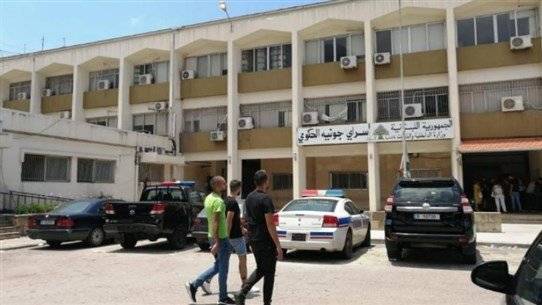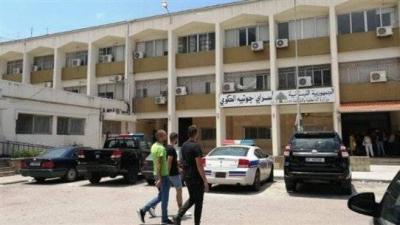Lebanon has lost its capital in all its public sectors. Without the ability to correct salaries in a way that does not increase the inflation level, it faces the danger of the public sector coming to an end, regardless of the economic reasons, which means it will not be able to provide public services. How does this reflect on citizens and public sector employees? This is what "Nidaa Al-Watan" will address after examining the conditions of employees in these administrations, some of which are in Kesrouan, Metn, and Jbeil.
Charbel (a lawyer in Jounieh) sets an appointment with an employee at the General Directorate of Real Estate Affairs to avoid the pointless attempts to register a property throughout the month without reaching a result. The appointment is not due to the crowd but for two reasons, with the outcome being the same: the employee's absence. The first reason is a strike, and the second involves dividing shifts among employees either due to the lack of documents or any reason that might prevent them from working, leading to their absence. Thus, neither Charbel receives his request, nor does Susan, who is waiting to get her compensation from Jounieh's insurance for the cost of her medications, not because the insurance does not pay, but also due to the employee's absence. This scene repeats in every state department, causing citizens to revolt against a state that reflects itself through its employees, declaring that this state is unproductive, meaning it does not provide the services they request.
How does a "public" employee live? It is true that state oversight mechanisms are weak, and there are random appointments associated with rampant corruption in this state. However, there is a large segment of Lebanese employees who are honest and live solely on their salaries from this state. Wael (a public sector employee - a pseudonym - Kesrouan) is one of those who is proud of the success of the strike that began two weeks ago, asserting that he is "tired of promises" of half-salary assistance and transportation allowances in parallel with the price of a can of gasoline rising above 700,000 Lebanese pounds, which is not enough for him to get to work daily from Jounieh. He questions: with a salary calculated at 1,500 pounds, not exceeding two million pounds, how are we supposed to support our families? Pay the electricity bill? Mortgage our homes? Wael demands to receive his salary based on the Sayrafa platform, rejecting the proposed "charity" assistance, as they have borne the burden of the "salary scale," which he sees as their right; since 1997, they have only received cost-of-living adjustments.
Samir (from Metn - a pseudonym - a firefighter) wonders about the logic of a state that imposes on them the obligation to commit solely to government jobs, with a salary that is not enough to pay a quarter of a school fee, "so we are forced to change our children's lifestyle to please this state, which does not rescue us from the well it has put us into and deprived us of social security." Josephine (Jbeil - works in finance - a pseudonym) relies on her husband, who works in a private company and gets paid in dollars. Nonetheless, she is astonished by the state's compensation for public sector employees after 30 years of hard work, having entered through the Civil Service Council exam. She recounts how she is forced to change her entire lifestyle to adapt even to the loss of documents within the ministry, as if she is going to work in vain. She shares that after so many years of working for the state, it is difficult to leave her job, and she is waiting for retirement, not expecting to find another decent job at her age. She laments the state’s situation and its loss of "qualified personnel," something she believes cannot be compensated.
Gioziane announces through "Nidaa Al-Watan" that at the end of this month, there may be no salaries for state employees. The reason? Because accountants cannot reach work, and there are no documents at all. The story of the documents is repeated with Jamil (a pseudonym - a temporary worker in the water company) who is a water bill collector and explains how he has no papers to collect the amounts owed by citizens; hence he has been at home for two months.
The situation at the Lebanese University is not better, as several professors describe how the job requires them to adopt a modern lifestyle in terms of obtaining scientific references priced in dollars, accessing high-speed internet, and attending university centers even when there are no classes. All these costs do not match the salary paid in Lebanese pounds. Amer Halwani, the president of the Executive Committee of the Association of Professors at the Lebanese University, explains how the Lebanese state has abandoned its responsibilities in the educational sector, demanding that it bear this burden, as how can a teacher focus on education while thinking about his children?
The Association of Public Administration Employees condemns, stating, "Our strike is directed against this corrupt political authority that has not initiated finding solutions," according to Ibrahim Nahhal, a member of the Administrative Body of the Association of Public Administration Employees in Lebanon, who summarizes the demands as "correcting salaries and wages for employees linked to the inflation index, as well as obtaining a transportation allowance equivalent to half a can of gasoline each day and supporting the Employees' Cooperative Fund." Ibrahim is not alone in expressing his dissatisfaction; Walid Waheb Al-Chaar, a representative of the Association of Public Administration Employees at the Ministry of Finance, shares his view, rejecting the proposed assistance, as he states in an economic study that a family of four needs 17 million pounds to live as they did before the crisis, while public sector salaries do not exceed two million pounds, suggesting five million as a minimum, with health and educational benefits, dismissing the notion that the public sector is unproductive since state revenues come from taxes and fees and are generated through public sector employees, as he described. Thus, this state must begin steps in "governance" and combat corruption to prove that it is capable of obtaining aid and grants from the international community, especially since due to this collapse, even privatization is not possible.




